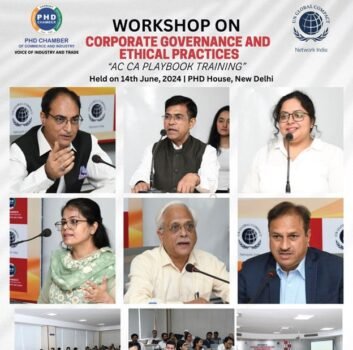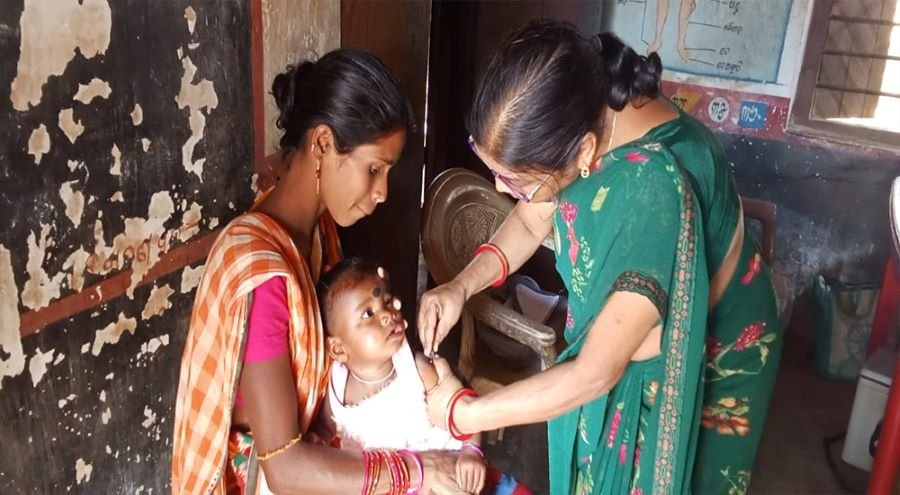

The highly anticipated workshop on “AC CA Playbook Training,” jointly organized by the UN Global Compact Network India (UN GCNI) and PHD Chamber of Commerce and Industry (PHDCCI), concluded successfully today at PHD House, New Delhi. The workshop was held in New Delhi on June 14, 2024.
It focused on enhancing participants’ understanding of anti-corruption collective action (AC CA) and promoting a culture of integrity in business environments. Professionals from diverse sectors attended the workshop, which featured comprehensive sessions highlighting key aspects of Anti- Corruption Collective Action (AC CA) initiatives. Participants gained insights into the importance of specialized training in combating corruption, detailed steps and tools provided by the AC CA Playbook, and effective methodologies to mitigate corruption challenges.
Mr. Ashish Mohan Wig, Chair of the HR IR Committee, PHDCCI, emphasized the significance and importance of collective action to fight corruption in the business sector. He said that businesses and societies face complex corruption challenges daily worldwide, and Collective Action is a key approach to slowing the scale of this issue.
Dr. Somnath Singh, Deputy Director of UN GCNI, highlighted that the AC CA Playbook builds upon resources developed by the UN Global Compact as part of multiyear projects/ programs implemented under the Siemens Integrity Initiative (SII). A series of consultations were conducted with Global Compact Local Networks representatives and the AC CA Working Group globally to receive feedback and tailor the Playbook to meet geographic, cultural, and other important considerations relevant to their business environments so that this AC CA playbook can be useful enough for all the sectors to identify and mitigate corruption challenges.






























